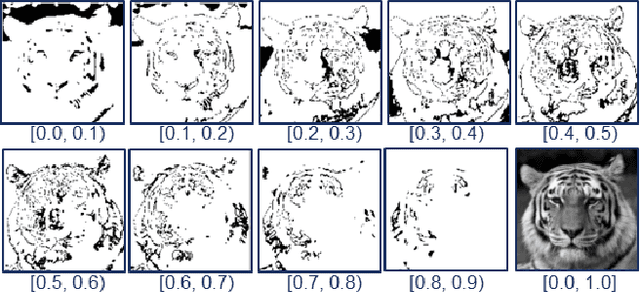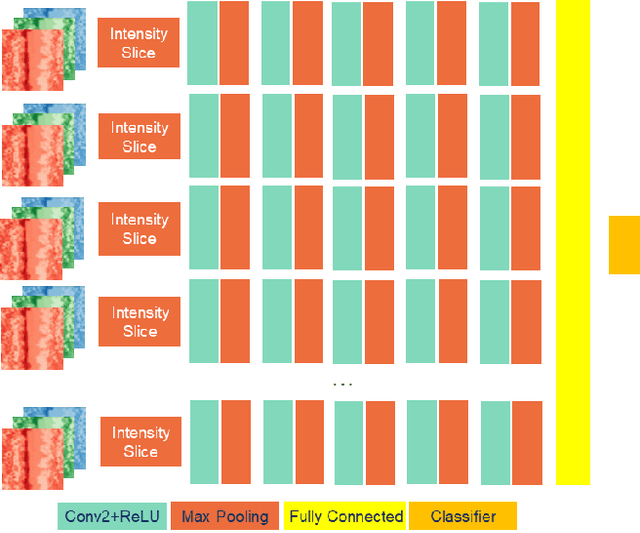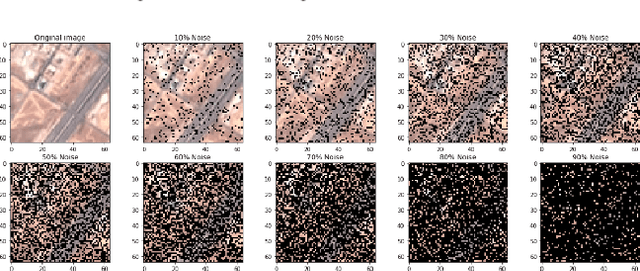Streaming Networks: Enable A Robust Classification of Noise-Corrupted Images
Paper and Code
Oct 23, 2019



The convolution neural nets (conv nets) have achieved a state-of-the-art performance in many applications of image and video processing. The most recent studies illustrate that the conv nets are fragile in terms of recognition accuracy to various image distortions such as noise, scaling, rotation, etc. In this study we focus on the problem of robust recognition accuracy of random noise distorted images. A common solution to this problem is either to add a lot of noisy images into a training dataset, which can be very costly, or use sophisticated loss function and denoising techniques. We introduce a novel conv net architecture with multiple streams. Each stream is taking a certain intensity slice of the original image as an input, and stream parameters are trained independently. We call this novel network a "Streaming Net". Our results indicate that Streaming Net outperforms 1-stream conv net (employed as a single stream) and 1-stream wide conv net (employs the same number of filters as Streaming Net) in recognition accuracy of noise-corrupted images, while producing the same or higher recognition accuracy of no noise images in almost all of the tests. Thus, we introduce a new simple method to increase robustness of recognition of noisy images without using data generation or sophisticated training techniques.
 Add to Chrome
Add to Chrome Add to Firefox
Add to Firefox Add to Edge
Add to Edge